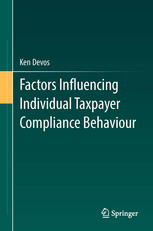

Most ebook files are in PDF format, so you can easily read them using various software such as Foxit Reader or directly on the Google Chrome browser.
Some ebook files are released by publishers in other formats such as .awz, .mobi, .epub, .fb2, etc. You may need to install specific software to read these formats on mobile/PC, such as Calibre.
Please read the tutorial at this link: https://ebookbell.com/faq
We offer FREE conversion to the popular formats you request; however, this may take some time. Therefore, right after payment, please email us, and we will try to provide the service as quickly as possible.
For some exceptional file formats or broken links (if any), please refrain from opening any disputes. Instead, email us first, and we will try to assist within a maximum of 6 hours.
EbookBell Team

4.3
28 reviewsThis volume provides a comprehensive analysis of why taxpayers behave the way they do. It reveals the motivations for why some taxpayers comply with the law while others choose not to comply. Given the current global financial climate there is a need for governments worldwide to increase their revenue collections via improving taxpayer compliance. Research into what shapes and influences taxpayer behavior is critical in that any marginal improvement in understanding and dealing with this behavior can potentially have a dramatic impact upon government revenue. Based on Australian data derived from the data bases of the Australian Taxation Office as an example, this book presents findings that provide lessons for tax systems around the world. Regardless of the type of tax system in place, taxpayers of all nationalities are concerned about how their tax authorities deal with non-compliance and in particular how the tax authorities go about encouraging compliance and ensuring a fair tax system for all. The book presents empirical evidence concerning taxpayer compliance behavior with particular attention being drawn to the moral values of taxpayers, the perceived fairness of the tax system and the deterrent measures undertaken by revenue authorities which influence that behavior. Other issues examined include the degree to which tax penalties operate as an effective deterrent to curbing behavior and how taxpayers' level of general tax knowledge and awareness also impacts upon their actions.